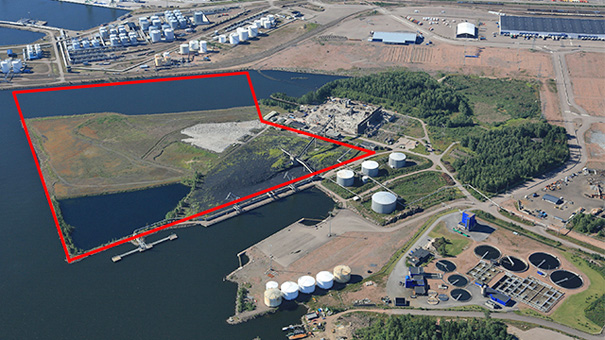UPM Studies Biofuels Opportunities by Starting Biorefinery EIA in Kotka, Finland
UPM, Finland, is studying biofuels development opportunities by starting an environmental impact assessment (EIA) for a possible biorefinery in Mussalo, Kotka, in southeastern Finland. The study of a possible Kotka Biorefinery is in the very early stages and the EIA process normally takes approximately one year.
EU and national policies on biofuels will also play an important role in the final assessment of the possible investment.
The EIA study states that the proposed second UPM biorefinery would use a different raw material base and technology than in the current UPM Lappeenranta Biorefinery. The Kotka Biorefinery would produce approximately 500,000 metric tpy of advanced biofuels for transportation, made from several renewable and sustainable feedstocks.
"We are looking into the use of several new feedstocks that fulfill sustainability criteria, such as wood residues and other sustainable wastes and residues. In addition to this, in Uruguay we are testing a winter cropping concept with Brassica carinata for biofuels' raw material. Oil from turnip rape-related carinata would be one of the possible raw materials for the Kotka Biorefinery," said Petri Kukkonen, VP of UPM Biofuels Development.
The environmental impact assessment started by UPM in February 2018 is a legal preventive environmental policy procedure. EIA studies the execution of alternatives, environmental impacts, and the possibility of minimizing harmful impacts, as well as the opinions of various stakeholders on all of these areas.
In the photo above,UPM has started an environmental impact assessment of a possible biorefinery for Mussalo, Kotka, in Finland. The proposed site is in the area of a dismantled power plant formerly run by the Pohjolan Voima energy company.
UPM Biofuels plans to become a major player in high quality, advanced biofuels for transport. Biofuels are an essential part of its Biofore strategy. The innovative wood-based biofuels developed by the company and the production technologies used by UPM are part of a sustainable future. UPM's biofuels are frontrunners in quality, usability, and sustainability. They will significantly decrease greenhouse gas and tailpipe emissions compared with fossil fuels.
More information about UPM Biofuels is available online.
UPM leads the forest-based bioindustry into a sustainable, innovation-driven and exciting future across six business areas: UPM Biorefining, UPM Energy, UPM Raflatac, UPM Specialty Papers, UPM Paper ENA, and UPM Plywood. UPM provides sustainable and safe solutions to growing global consumer demand. Products are made of renewable and recyclable materials. The group employs around 19,100 people worldwide and its annual sales are approximately EUR 10 billion.
TAPPI
http://www.tappi.org/

